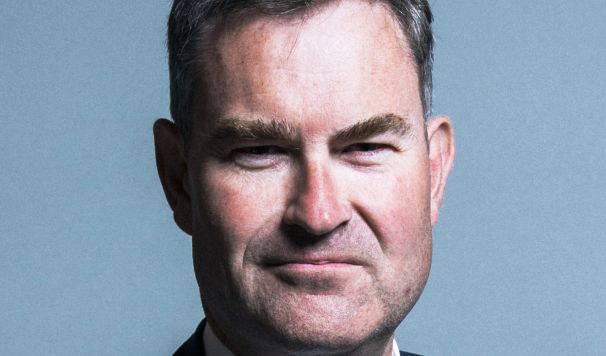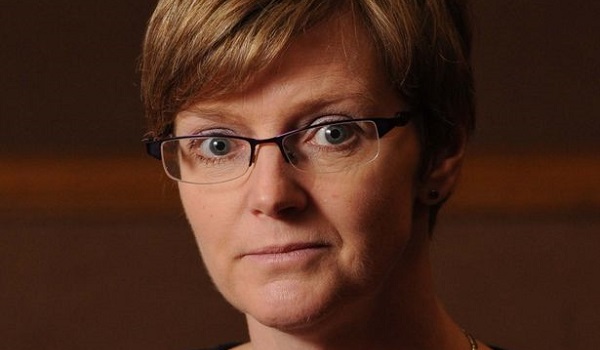Women in justice: Government launches residential centre trial scheme but scraps plans for five new community prisons
Police and crime commissioners have applauded a step change in Government policy diverting women offenders away from prison.
David Gauke has abandoned plans for five community prisons for women in England and Wales – saving an estimated £50 million – and instead pushed trials for five residential rehabilitation centres to help offenders find work funded by a £3.5 million grant up to 2020.
The Justice Secretary intends to move emphasis from “custody to the community” by trying to bring the female prison population down, insisting shorter jail sentences have failed to halt the “cycle of offending” as less than 40 women behind bars in England and Wales have committed a violent crime.
Association of PCCs Victims Lead Dame Vera Baird says the shift in focus “offers better public protection at a fraction of the cost of prisons”.
She added: “Working with women offenders at the earliest stage has been shown to reduce reoffending rates, reduce drug and alcohol use, and improve emotional and mental health.
“Having access to the right support services enables female offenders to turn their lives around.”
But she stressed for the “strategy to achieve its intentions”, the proposals need to be properly funded.
Community sentences – such as unpaid work, addiction programmes and rehabilitation activities – have been shown to be cheaper and more effective than imprisonment.
And the Ministry of Justice’s Female Offenders Strategy, originally supposed to be published in early 2017, aims to put an increased focus on non-custodial outcomes.
Mr Gauke said: “I am convinced that if we take the right approach to female offenders – one that addresses vulnerability, follows the evidence about what works in supporting them to turn their lives around, and treats them as individuals of value – it could have substantial benefits for victims, families, and wider society, as well as for female offenders themselves.”
The latest strategy to help female offenders sets out the Government’s commitment to a new programme of work for female offenders, driven by three priorities – earlier intervention, an emphasis on community-based solutions, and an aim to make custody as effective and decent as possible for those women who do have to be there.
All this is promised through a framework of effective partnerships, at national and local level.
The move is part of a drive to cut the number of female offenders serving short jail terms – something which usually sees their children placed in local authority care.
Research shows women are more than twice as likely to have a mental health issue than men, while almost half of female prisoners said they committed their offence to support the drug use of someone else – compared with one in five male prisoners.
The Prison Reform Trust (PRT) also found 57 per cent of female prisoners reported suffering domestic violence and were often guilty of a crime less serious than ones they were a victim of.
In the foreword to the strategy, Mr Gauke said 71 per cent of women and 63 of men released from custody between April and June 2016 after a sentence of less than a year went on to re-offend within 12 months.
Mr Gauke added: “The impact on women, many of whom are sentenced for non-violent, low-level but persistent offences, often for short periods of time, is particularly significant. The prevalence of anxiety and self-harm incidents is greater than for male prisoners.
“As more female offenders are primary carers than their male counterparts, these sentences lead to a disproportionate impact on children and families and a failure to halt the intergenerational cycle of offending.”
It is estimated that female offenders cost £1.7 billion in 2015/16, of which around £1 billion was incurred by the police.
On a positive note, the new strategy received praise from the PRT in a “welcome recognition of the futility of short prison sentences” for women whose offending is often driven by “unmet mental health needs”.
The report was also backed by charity Clinks for its “specific strategy” for women in the criminal justice system.
However, Clinks raised concerns about the need for greater investment in the voluntary sector services if the plan is to succeed.
A spokesperson said: “The strategy recognises the important role voluntary organisations play in providing quality wraparound services essential in supporting women in the justice system, meeting their often very complex needs.
“Voluntary sector feedback is reflected in the focus on reducing the number of women receiving short sentences, recognising that these can be damaging to women’s lives, with little time to address underlying issues, resulting in poor outcomes.”
But it adds: “However, despite the aspirational nature of the strategy, the level of resources to bring about such significant change is low. Voluntary sector organisations currently face significant financial challenge to even maintain current levels of service.
“Research shows that locally-based women-centred services save the government considerable money and closures and reductions in services come with a future bill, both financially, and in damaged lives of the women, their families, communities and wider society.”
Dame Vera said the £50 million saved from not building new prisons should be pumped into rehabilitation and not handed back to the Treasury while the PRT believes the MoJ has “not provided the resource to deliver that change, and no timetable to drive it”.
“As this building work is now rightly not happening, the money should be invested in to this strategy – that will show a real commitment from government that it wants this strategy to succeed,” added the Northumbria PCC.
She called for a more coordinated approach across government; proper leadership; a published action plan with key dates for implementation of the various commitments; and clarity around who should lead the many local initiatives it proposes.
Dame Vera said: “It is only by doing all of these things will we reduce the numbers of women prosecuted and going to prison, thereby both saving huge amounts of government funding on expensive prisons and also tackling the inter-generational impact of mothers being detained.”
Revolving Doors Agency chief executive Christina Marriott agreed more funding was needed, adding: “The unambiguous ambition that less women will be sentenced to ineffective and disruptive short sentences is a significant step in reducing reoffending and reducing damage to families.
“The task now is to make this a reality through local and national investment.”







